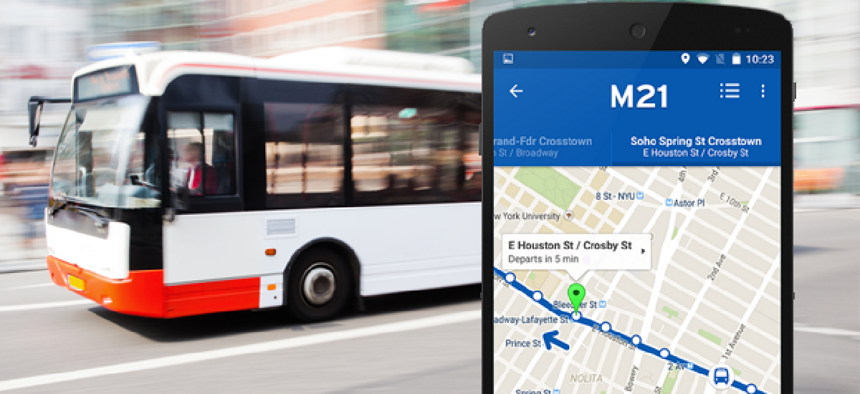Improved open data nets Transit App service for three cities


Connecting state and local government leaders
Chattanooga, Baltimore and Cleveland have recently opened their transportation data to allow Transit App to help citizens view all public transit options in real-time.
Three more cities now have real-time public transportation information available to their commuters, without having to develop or maintain the mobile apps themselves. All it took was improved open data, and some serious collaboration with some civic-minded coders.
All three cities -- Chattanooga, Tenn., Baltimore, and Cleveland -- are now served by Transit App, which uses open public transportation data to display all local transport options and departure times instantly in 99 cities worldwide. Users can view bus schedules and arrivals, metro rail maps and departures, request service from Uber, plan a bicycle trip with viewable bike paths and more.
To do this, Transit App relies on the city’s open data portals and transportation information from various local agencies, which means cities with better data are more likely to be added to the service.
Before Chattanooga became one of Transit App’s available locations, however, its transit information had not yet been offered online, according to a company post in Medium.
Through a partnership with the Code for America team and the Chattanooga Area Regional Transportation Authority, digital transit schedules were made available to third-party developers on GitHub.
That effort, combined with some social media campaigning, moved the city to the top of Transit App’s “wishlist.”
Shortly after, Chattanooga had a Transit App with schedules, trip planning, information on the bike-sharing program and real-time transit data. According to Transit App, this citywide citizen service was all done at no cost to Chattanooga government, and without any proposal requests.
After Chattanooga’s success, the team at Transit App was inspired by a Code for America brigade captain, Chris Whong, and his Baltimore project.
Whong took data from the Maryland Transit Administration’s website and created a site with a real-time bus location map -- largely out of frustration with the inefficiency of the state’s own bus tracker.
According to Transit App, Baltimore’s transit-tracking system had already cost the city $2.7 million, and in order to transform that information to a shareable format, the city said it would cost another $600,000.
Once Code for America was able to access Baltimore’s real-time transit information with Whong’s help, Transit App implemented it into its systems and opened up yet another easily usable city service.
This service is especially beneficial for a city like Baltimore, where more than half of residents do not have a car.
More recently, Transit App was able to do the same for Cleveland after a request from that city’s Code for America brigade.
Transit App was able to reach out to the city’s CIO, who allowed the company to access and leverage necessary data from the Greater Cleveland Regional Transit Authority provider, or Riderta.
Though Cleveland’s real-time information is not yet fully open and integrated, the Transit App post mentioned the city’s strong advocacy for open data -- through multiple groups like Open Cleveland, Hack Cleveland and Cleveland Neighborhood Progress -- as encouraging signs of continued transparency efforts.

NEXT STORY: Alliance releases open data standards for construction permit info




